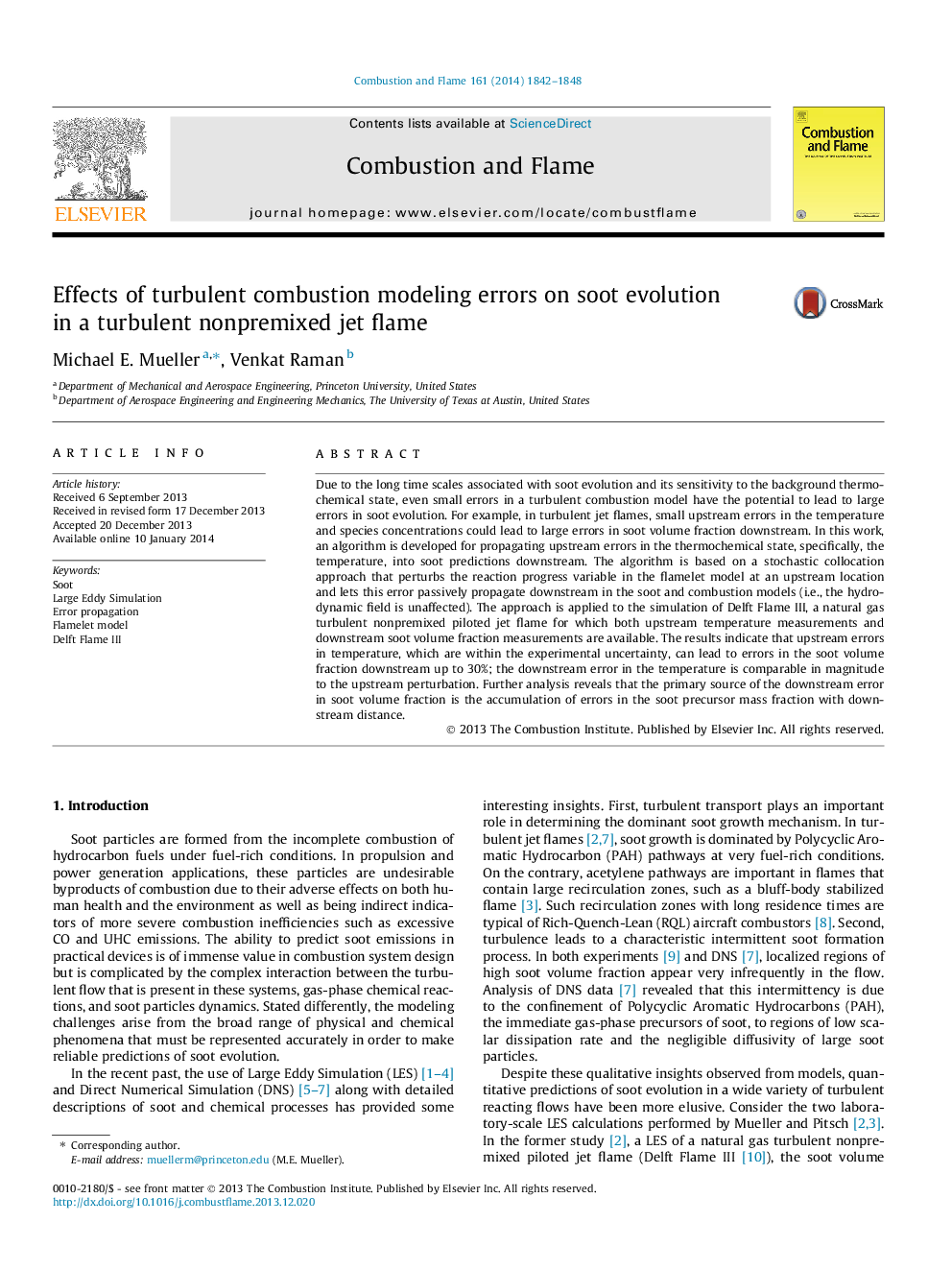| Article ID | Journal | Published Year | Pages | File Type |
|---|---|---|---|---|
| 168663 | Combustion and Flame | 2014 | 7 Pages |
Due to the long time scales associated with soot evolution and its sensitivity to the background thermochemical state, even small errors in a turbulent combustion model have the potential to lead to large errors in soot evolution. For example, in turbulent jet flames, small upstream errors in the temperature and species concentrations could lead to large errors in soot volume fraction downstream. In this work, an algorithm is developed for propagating upstream errors in the thermochemical state, specifically, the temperature, into soot predictions downstream. The algorithm is based on a stochastic collocation approach that perturbs the reaction progress variable in the flamelet model at an upstream location and lets this error passively propagate downstream in the soot and combustion models (i.e., the hydrodynamic field is unaffected). The approach is applied to the simulation of Delft Flame III, a natural gas turbulent nonpremixed piloted jet flame for which both upstream temperature measurements and downstream soot volume fraction measurements are available. The results indicate that upstream errors in temperature, which are within the experimental uncertainty, can lead to errors in the soot volume fraction downstream up to 30%; the downstream error in the temperature is comparable in magnitude to the upstream perturbation. Further analysis reveals that the primary source of the downstream error in soot volume fraction is the accumulation of errors in the soot precursor mass fraction with downstream distance.
